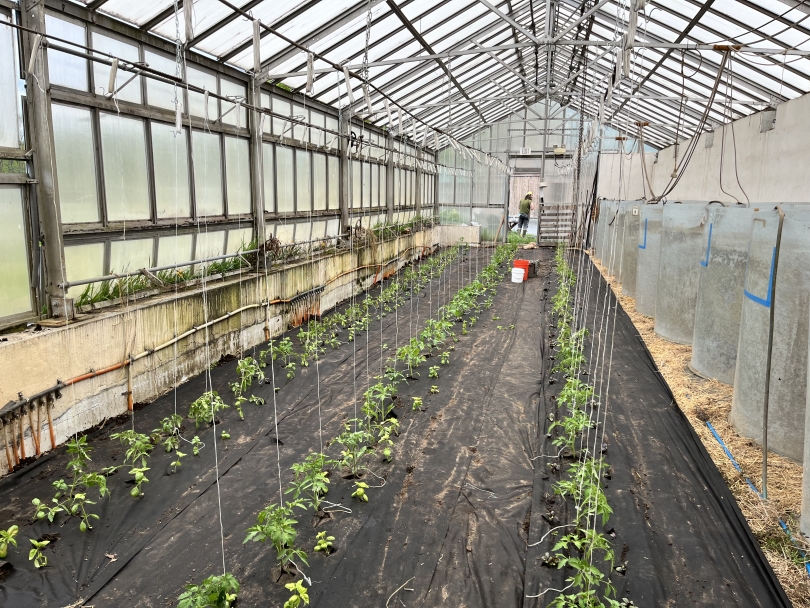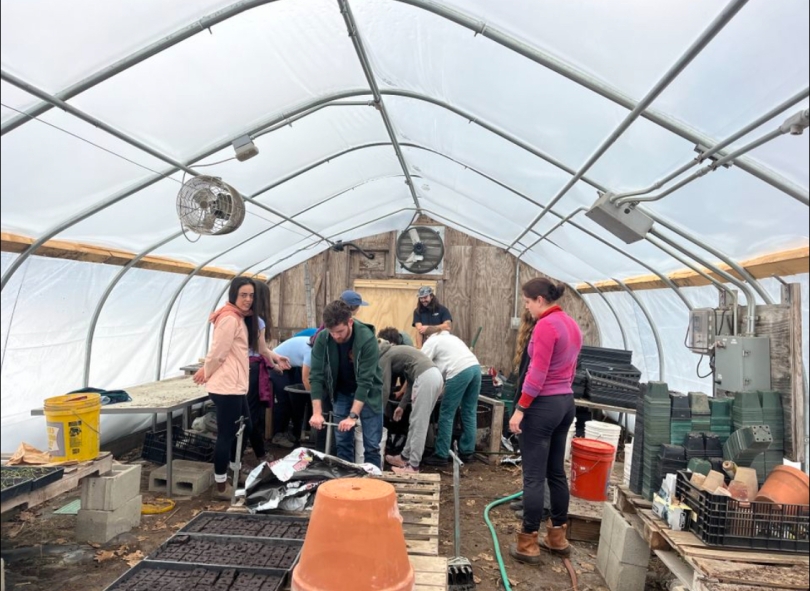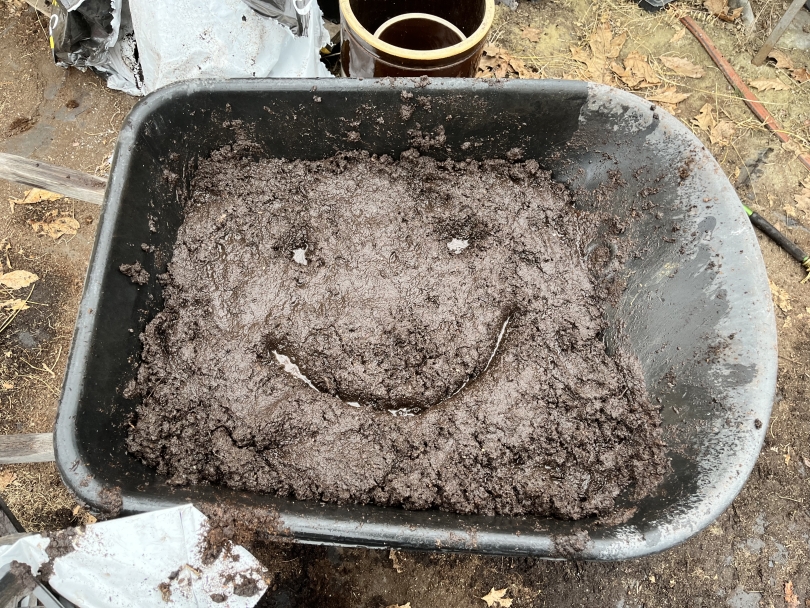
The Good Old Organic Farm
One of my greatest career goals is to get to work hands-on. Don't get me wrong, I love bringing data together and seeing the results of scientific experimentation, but by far, my favorite part of science is going out and getting my hands dirty. This upcoming summer, I'll be working in a lab researching soil carbon, but this term, I've had the chance to experience soil in an entirely different way as an intern at the Dartmouth Organic Farm!
The Organic Farm (known as O Farm) is Dartmouth's main space for exploring agricultural practices and field research into soil, plant communities, and best practices for farming. The main bulk of the O Farm is the field where we plant rows of crops, as well as the hoop house where we work with seeds and seedlings, and the solar greenhouse where we grow more picky plants (tomatoes and basil this year!). Although most of my responsibilities have been on the farm itself, there are also multiple labs running research projects and class experiences at the farm, as well as an area dedicated to beekeeping.

An average day for me at the farm changes a lot every week, making the job very dynamic and fun. For the first few weeks, I was mainly soil-blocking, essentially making starter blocks to plant seeds in. Part of the O-Farm's mission is to farm as sustainably as possible, so we try to minimize the amount of plastic waste we generate by reusing plastic pots and irrigation tubing for several years and by cutting out the use of individual seed-starter trays by blocking the soil with a special tool. These soil blocks give the plants the space they need to grow while also keeping our garbage minimal.

Speaking of soil, one of my favorite parts of the job is preparing the soil for blocking and potting! We mix our own potting soil from various ingredients, including peat, manure, and sand, then load it up with water and give it time to all come together into a perfect potting mix.
After spending a few weeks in the hoop house, seedlings need some more space, so we either repot them in a larger container or plant them straight in the field. At the O Farm, we try to minimize the impact of tillage on the health of the soil, so we make our rows with a small machine that stays mostly at the topsoil level and rely on manual broadforking to aerate and break up the soil. Broadforking, essentially stabbing into the ground with a sharp rake and mixing things up, is a great workout and keeps the soil from becoming overmixed.
From there, it's planting, weeding, and watering until harvest. Although the planting and weeding are done by hand, we use long pipes that rest on top of the rows to drip irrigate the plants, only using just enough water to keep them healthy and avoid waste.
Although they are a long ways off, seeing everything starting to sprout up and grow throughout the term has made me very excited for all of the Farm events that take place in the Summer and Fall. Farm stands, pizza making, flower picking, and everything else that will come in the season of harvest.
But one of the best things about the farm (especially for any curious high schoolers who might be reading this) is that it's completely open to the public! You can come by any time and check it out, simultaneously learning more about the sustainability office's goals and how we are reaching them, and getting a taste of the natural environment that surrounds Dartmouth.
Working at the farm has been a fantastic experience so far and I'm very excited to round out these last few weeks of planting and eventually experience the Fall's harvest, whether that's as an intern or as part of the Farm club!

















